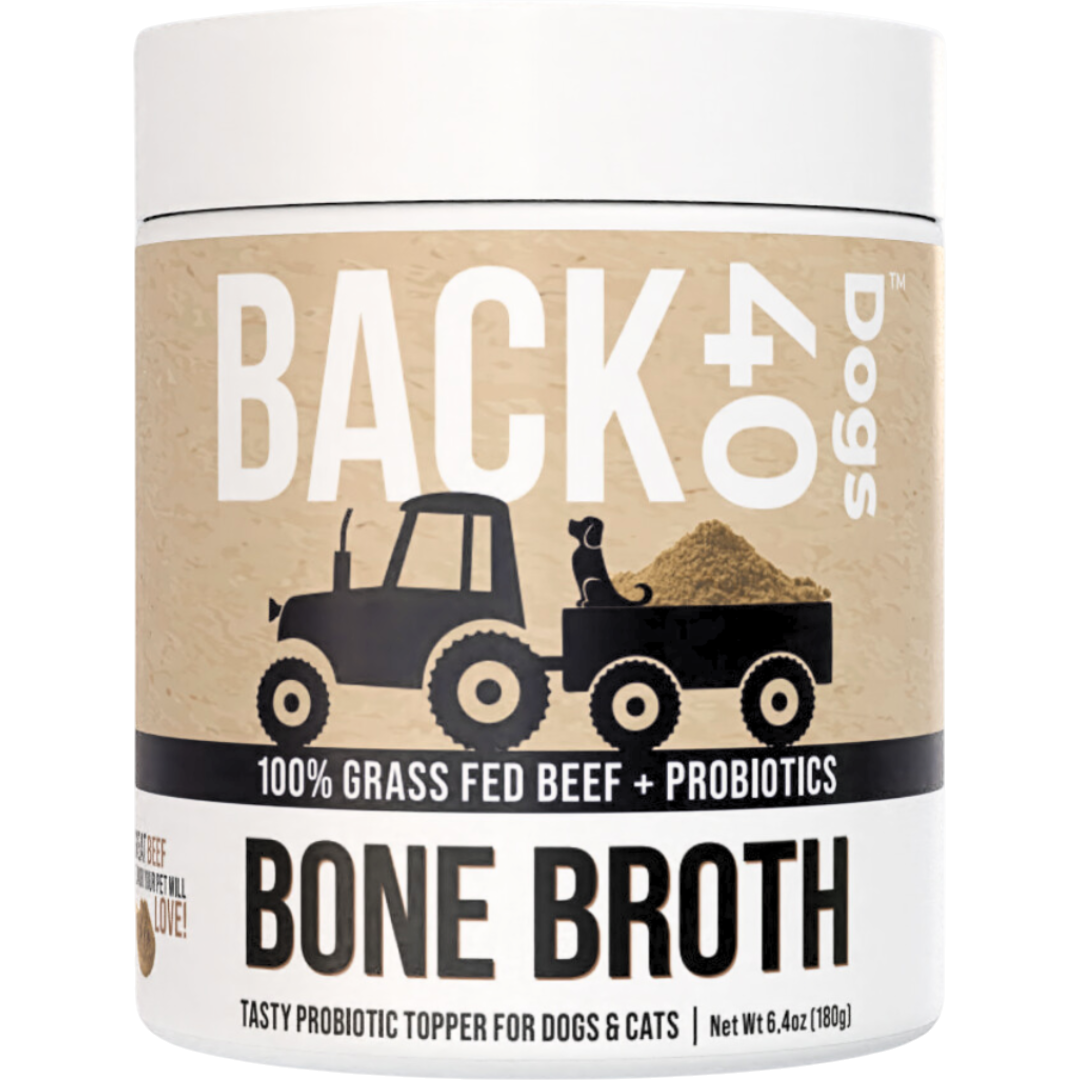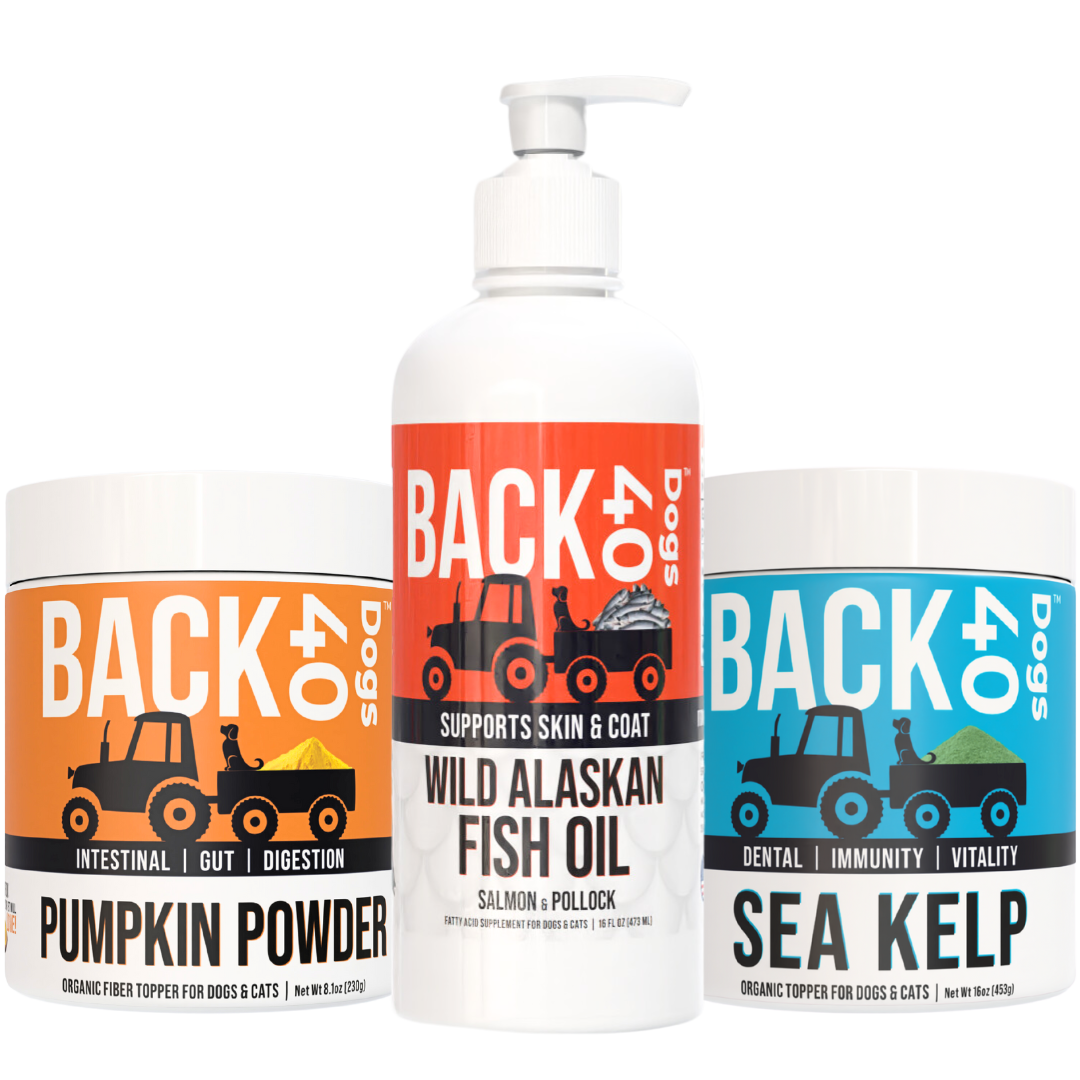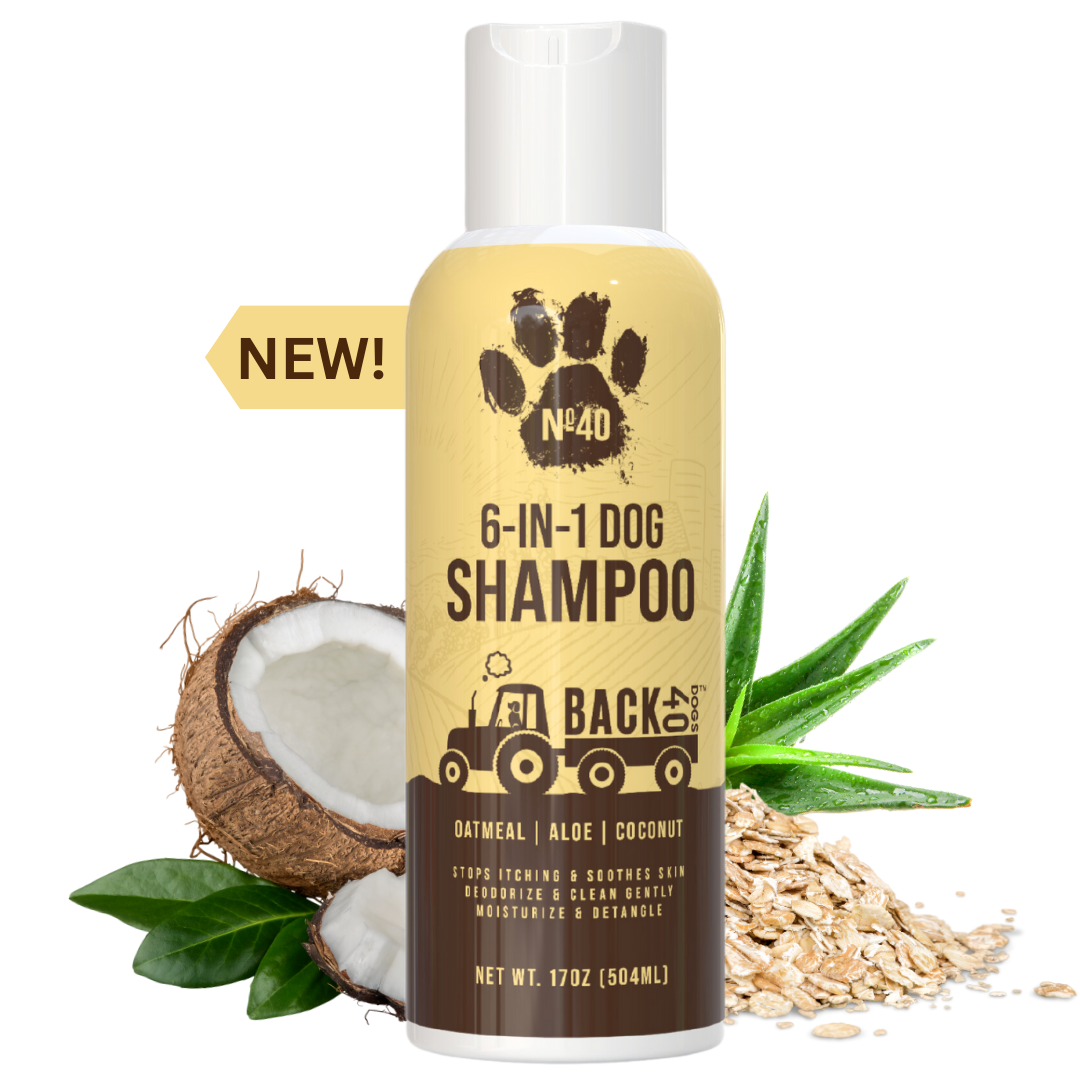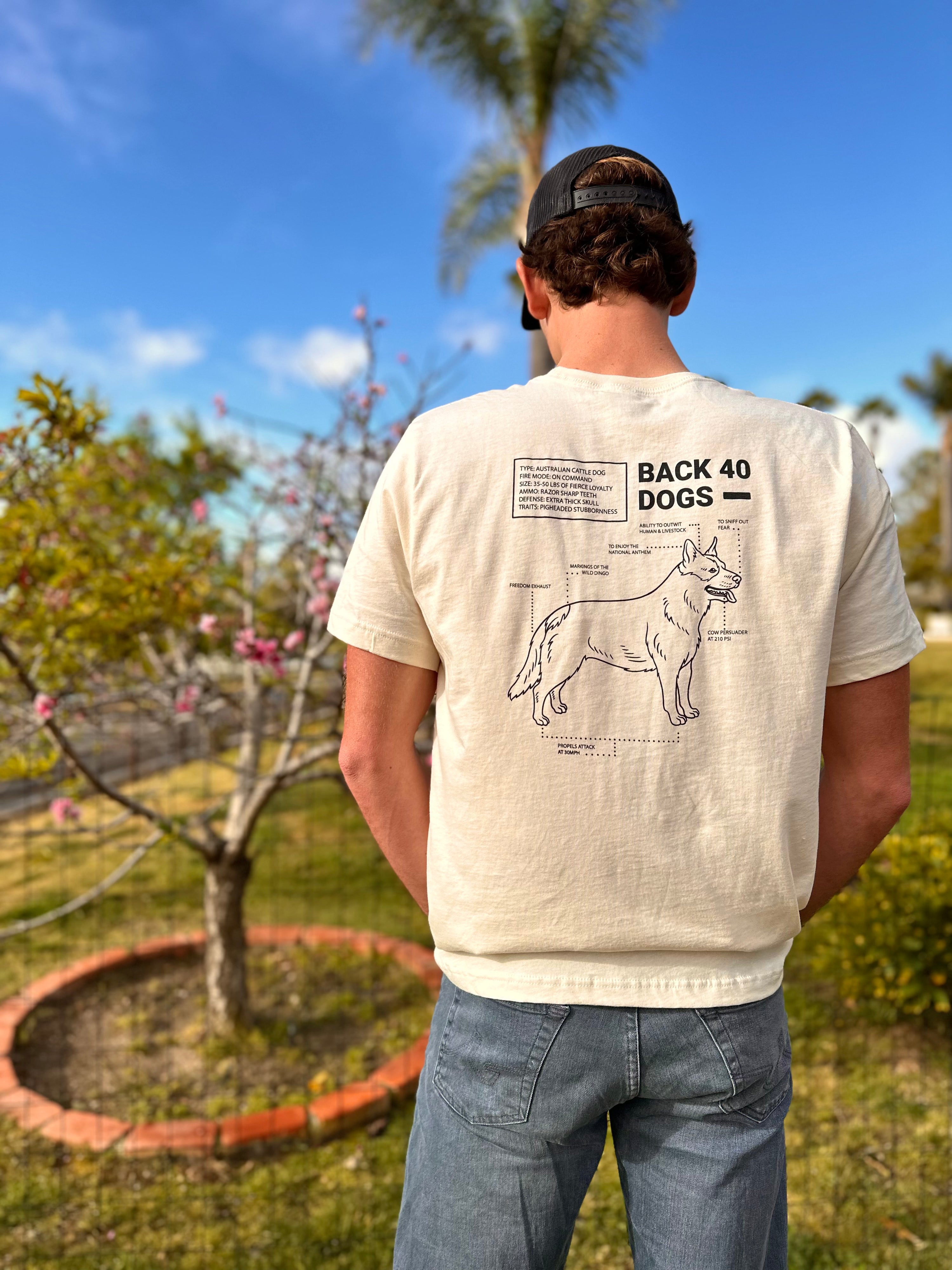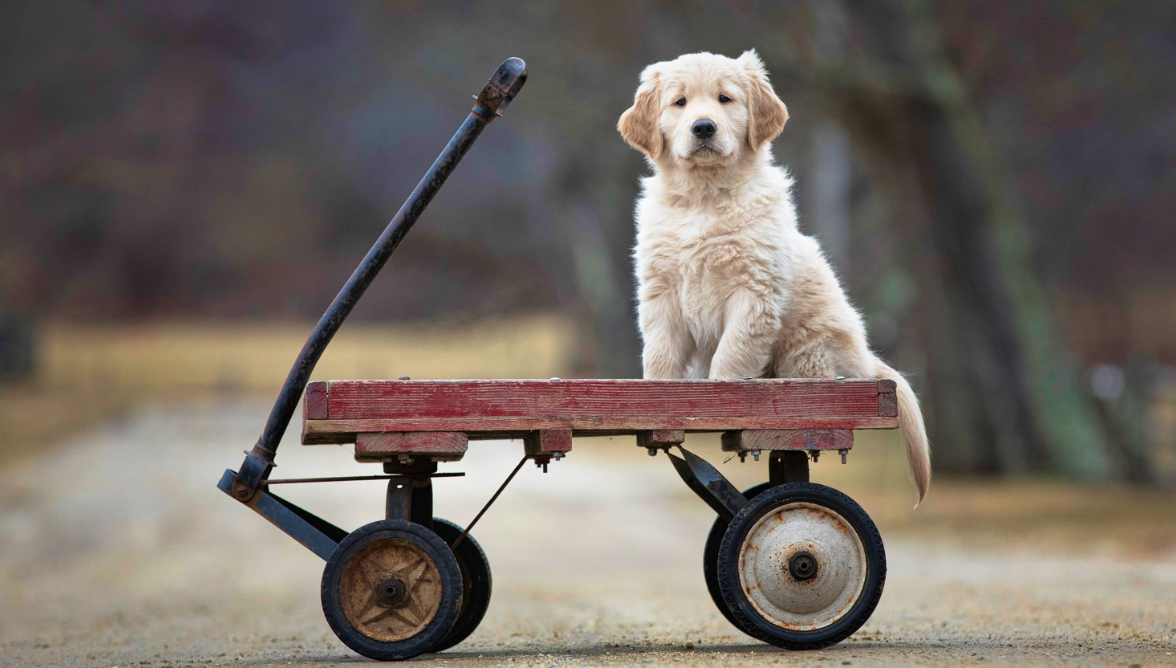

· By BACK 40 Dogs
What No One Talks About When Picking a Puppy
If you're reading this you have probably decided it is time to add another furry family member to the family. Congrats!
Adding a puppy is an exciting time and a very big decision. You are probably aware of the large commitment, both in terms of time and financially over the next 10-15 years.
Today's article will be a fairly simple one, but it is something I do not hear enough people talk about when selecting a puppy.

Which Breed is Right for Me?
First of all, props to you for even reading this and putting in the time to make sure you bring the right dog into your family.
So often people will see a cute puppy and decide they "need to bring it home."
One year later that dog is now 120 lbs and ends up in the shelter. This story happens all too often.
BUT NOT YOU! That's why you're here. You want to be an invested dog owner like the rest of us here at the BACK 40 Dogs pack.
Start Here
We are going to start from point A and I will walk you through the whole process I have used that has worked for me ( and we've had a lot of dogs ).
Start by looking at what the breed was originally bred to do.
A breeds origin plays a huge role in what that dog's personality and temperament is going to be like and what they will be like around the house.
A breed's history and genetics is something that has been bred into them for much longer than you and I have even been around.
Let's take a look at a few examples.
If you want a dog to help you herd livestock on a ranch, would you get a Golden retriever or a Border Collie?
This might be obvious to some of you, but a Border collie is bred to herd. It flows through their veins and you can see the intense focus in their eyes.
Now, I am not saying Border Collies don't make excellent family dogs, but if you are looking for a nanny for your young children who won't herd them, a breed that was bred to do that job would be a better fit.
Breed's like Newfoundlands or Great Pyrenees are known to be extremely patient with both young children and other types of animals because that is what they were bred for.
Great Pyrenees are a livestock guardian breed. Meaning they were bred to live with and protect livestock - whether that be goats, chickens, pigs, anything that could be a potential meal to a predator.

They are known to be extremely gentle and it's not uncommon to see baby chickens or baby farm animals climbing on top of these 130+ lb dogs.
They are a nocturnal breed and are more active at night because that is when predators are looking for a snack.
On the flip side, if you don't want a dog that will patrol your yard and bark at coyotes in the wee hours of the morning, possibly driving your neighbors insane, probably not your breed.
You can't blame them for it. That is what they were designed to do.
Am I making sense here?
It becomes much easier to narrow down what type of dog you want once you understand that what that breed was specifically bred for plays a large role in their personality and behaviors.
If you want a dog that will be very protective of you and your house, consider a Rottweiler. On the flip side, know that this is a powerful breed that is known to be dominant.
They will take matters into their own hands if they do not have a strong and experienced handler because that is how the breed was intended to be. To protect their property at all costs.
That may sound like what you are looking for, or it may sound imposing and like something you don't want to deal with.
A few more quick examples:
A Labrador was bred to look to their owners for directions and be eager to please, happy go lucky and please their owner.
A Rhodesian Ridgeback was bred to be independent, think on their own, and not need any human guidance.
An Australian Cattle Dog was bred to be tenacious and bully 1,200 lb cows.

A German Shorthaired Pointer was bred to range far away from you and find birds while a German Shepherd is bred to be more protective and likely won't venture far from your side.
A French Bulldog was bred to sit on your lap and be cuddly.
The Individual Dog Matters
Part of the reason finding a responsible breeder is so important is that they know their litter of puppies better than anyone else.
Just because Rhodesian Ridgebacks are an independent breed, if you are looking for a dog that will be more interested in training and and looking to you for direction, the breeder may have a puppy that fits that description.
There are always exception to the standard, but it is a good place to start.
A responsible breeder will help match you with the right temperament you are looking for in a dog.
Within a litter there are more outgoing dogs, more reserved dogs, more independent or dependent dogs.
Breeders can usually start to tell signs of this at a very young age based on how the puppies interact with their littermates and people they are introduced to.
We will be posting a blog post soon on "The Puppy Tests" which is a series of tests you can do and score a puppy on a spectrum of where you think their personality will be like. Dominant, submissive, etc. There are tons of versions of this online.
Health and Life Span
This should be of no surprise, but different breeds are dogs are known to live different lengths of times and certain breeds are more susceptible to health issues.
Generally, breeds that are extremely popular can be over-bred and this can result in irresponsible breeding of dogs that shouldn't have been bred simply because that breeder wanted to capitalize on the demand.
BAD.
Labs, Rottweilers, Dobermans, and Bulldogs, are some common breeds that experience health issues, though the list goes on. And like mentioned above, finding a responsible breeder who performs health testing is the best way to try and avoid this.
Trust me, you do not want a dog that will be in the Vet every month. Those bills add up!
Size is an important factor to consider when selecting which breed of puppy is right for you as well.
A Great Dane is not known for living very long due to their extreme size, while a pint size Yorkie terrier commonly lives to 16 years old.

The size of a dog will dramatically dictate how much you spend on food - something to consider for sure.
Spend Time with Different Breeds
The last piece of advice I can offer is to spend time with different breeds and talk to as many owners of the breeds you are interested in as possible.
Social media is a great way to talk to people about their dogs. Most people who love their dogs enough to make an instagram account for them would love to tell you about the breed.
There is no replacement for meeting the breed in person. You read online that "a Belgian Malinois needs a job to do or else it may find a job you don't like such as shredding your Sofa," but if you have not met that breed and seen the intensity when they work I doubt you fully understand what that means.

When you see the most intense dog you've ever seen flying through the air at a bite suit doing police protection work, you realize that dog is more than most people can handle because they are BRED TO WORK.
They live for it - if you were not able to give that dog the outlets it needs to be fulfilled you are doing the dog a disservice and that dog will also likely drive you insane as well LOL.
In Conclusion
Research what a breed was originally bred to do as this will give you great insights into what their behaviors will be like.
Once you narrow down which breed you like, try and spend as much time with them and talk to as many owners as possible.
After you are set on the breed, the work doesn't stop there. Make sure you find a responsible breeder that can help you pick the right individual dog for your lifestyle.
Then, well, then the real work starts! But we wouldn't have it any other way.
Thanks for reaching, check us out on Youtube @ Jack and Cowboy ( or @cowboy_the_cattle_dog on Instagram ) and we will catch you next time!

